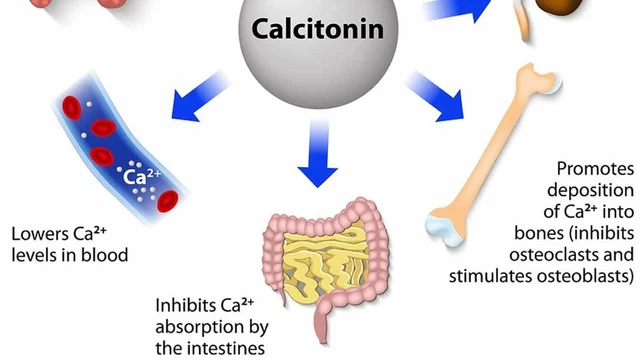Understanding Acamprosate
As we embark on this journey of understanding Acamprosate, it's essential to begin with the basics. Acamprosate, often known by its brand name Campral, is an FDA-approved medication primarily used to manage alcohol dependence. It is a form of medication-assisted treatment (MAT) that works by restoring the balance of certain chemicals in the brain that become disrupted by long-term alcohol abuse. This restoration helps to reduce cravings for alcohol, making it easier for individuals to maintain abstinence.
Why Discuss Acamprosate in the Elderly
The need to discuss Acamprosate in the elderly arises from the fact that this age group is not immune to alcohol addiction. In fact, many seniors develop alcohol dependency later in life due to factors like retirement, loss of a spouse, or chronic health conditions. Despite this, the topic of substance abuse in older adults often gets overshadowed by other health concerns. This is why it's important to shed light on how treatments like Acamprosate can be beneficial for this demographic.
Assessing the Efficacy of Acamprosate in the Elderly
When it comes to assessing the efficacy of Acamprosate in the elderly, we need to understand that while it has been proven effective in adults, fewer studies have been conducted specifically on seniors. However, the studies that do exist suggest that Acamprosate can be a viable treatment option for older adults with alcohol dependence. It can help reduce alcohol cravings and maintain sobriety, thereby improving their overall quality of life.
Safety of Acamprosate Use in Older Adults
The safety of Acamprosate in older adults is another crucial aspect that needs to be considered. Generally, Acamprosate is well-tolerated by most individuals, with side effects being fairly mild and short-lived. However, in older adults, these side effects may have a greater impact due to the presence of other health conditions and the use of other medications. It's crucial that healthcare providers closely monitor these patients to ensure the safe use of Acamprosate.
Drug Interactions: Acamprosate and Other Medications
Given that older adults often take multiple medications, a section on drug interactions is essential. Acamprosate doesn't usually interact with other medicines. However, it's important to discuss all medications, including over-the-counter drugs and supplements, with a healthcare provider before starting Acamprosate. This can help avoid potential interactions and ensure the medication is safe and effective.
Personalizing Acamprosate Treatment for Older Adults
Personalizing Acamprosate treatment for older adults is key to its success. This means considering factors like the patient's overall health, other medications, and individual preferences. Additionally, it's important to remember that Acamprosate is just one part of a comprehensive treatment plan that should also include counseling and support groups.
Role of Caregivers in Managing Acamprosate Treatment
Caregivers play a significant role in managing Acamprosate treatment for the elderly. They can help ensure that the medication is taken as directed, monitor for side effects, provide emotional support, and assist in coordinating care. Their involvement can make a significant difference in the success of the treatment plan.
Final Thoughts on Acamprosate in the Elderly
In conclusion, Acamprosate can be a safe and effective treatment for alcohol dependence in older adults. However, it's important to approach this treatment with an understanding of the unique considerations of this age group. By doing so, we can help ensure that our elderly loved ones receive the best possible care and support in their journey to sobriety.





Comments (12)